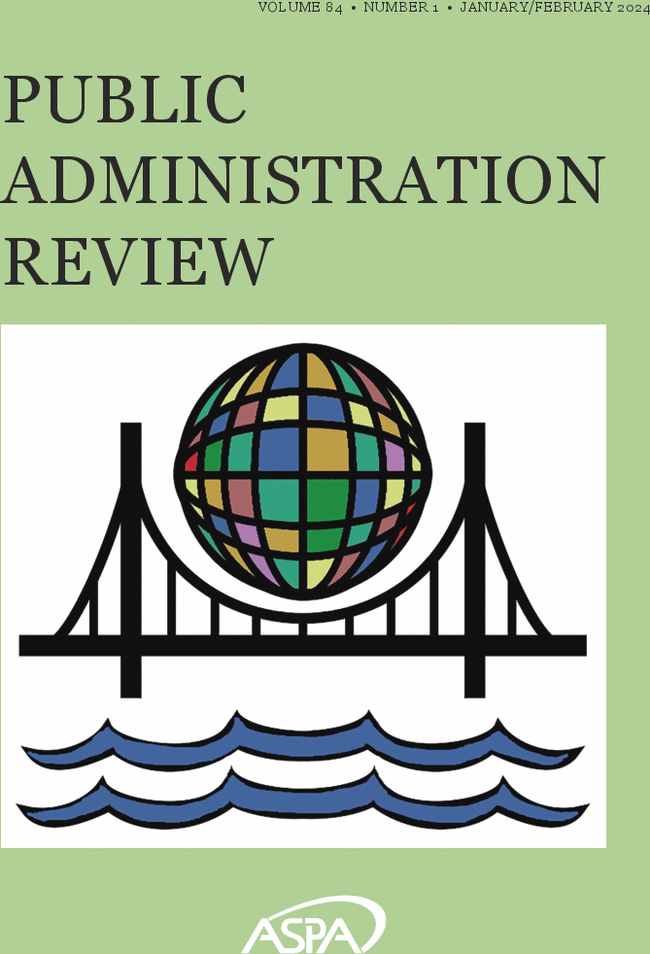人工制品的治理:行政负担物质性的理论与证据
IF 6.1
1区 管理学
Q1 PUBLIC ADMINISTRATION
引用次数: 0
摘要
行政负担研究有助于更好地了解公民在获取国家服务时的经历。然而,在这一研究方向中,公民与行政人员互动的物质基础设施的重要性在很大程度上仍然缺失。为了弥补这一研究空白,本文利用人种学数据讨论了官僚办公室中的物质和虚拟人工制品对公民获取社会服务时所面临的行政负担的影响。本文从物质、象征和审美三个维度进一步解读了人工制品的意义。我们的研究结果表明,某些人工制品的工具性(或缺乏工具性)会不成比例地降低某些社会群体对官僚空间的可及性和可用性,从而加重他们的行政负担。此外,象征着权力、声望和行政便利的器物被保留给了社会精英所占据的空间,而弱势群体则被贬到了普遍忽视美学和象征腐朽的官僚空间。本文章由计算机程序翻译,如有差异,请以英文原文为准。
Governance by artifacts: Theory and evidence on materiality of administrative burdens
Administrative burden research has contributed to improved understanding of citizens' experiences while accessing state services. However, the significance of the material infrastructure within which citizen–administrator interactions take place remains largely absent from this line of research. To help address this research gap, this article uses ethnographic data to discuss the influence of material and virtual artifacts in bureaucratic offices on the administrative burden faced by citizens accessing social services. This significance of artifacts is further unpacked along their material, symbolic, and aesthetic dimensions. Our findings suggest that the instrumentality of certain artifacts (or lack thereof) can disproportionately decrease accessibility and usability of bureaucratic spaces for certain social groups thereby augmenting their administrative burden. Moreover, artifacts symbolizing power, prestige, and administrative easing are reserved for spaces occupied by the social elite while the underprivileged groups are relegated to bureaucratic spaces characterized by a general neglect of aesthetics and symbolism of decay.
求助全文
通过发布文献求助,成功后即可免费获取论文全文。
去求助
来源期刊

Public Administration Review
PUBLIC ADMINISTRATION-
CiteScore
15.10
自引率
10.80%
发文量
130
期刊介绍:
Public Administration Review (PAR), a bi-monthly professional journal, has held its position as the premier outlet for public administration research, theory, and practice for 75 years. Published for the American Society for Public Administration,TM/SM, it uniquely serves both academics and practitioners in the public sector. PAR features articles that identify and analyze current trends, offer a factual basis for decision-making, stimulate discussion, and present leading literature in an easily accessible format. Covering a diverse range of topics and featuring expert book reviews, PAR is both exciting to read and an indispensable resource in the field.
 求助内容:
求助内容: 应助结果提醒方式:
应助结果提醒方式:


